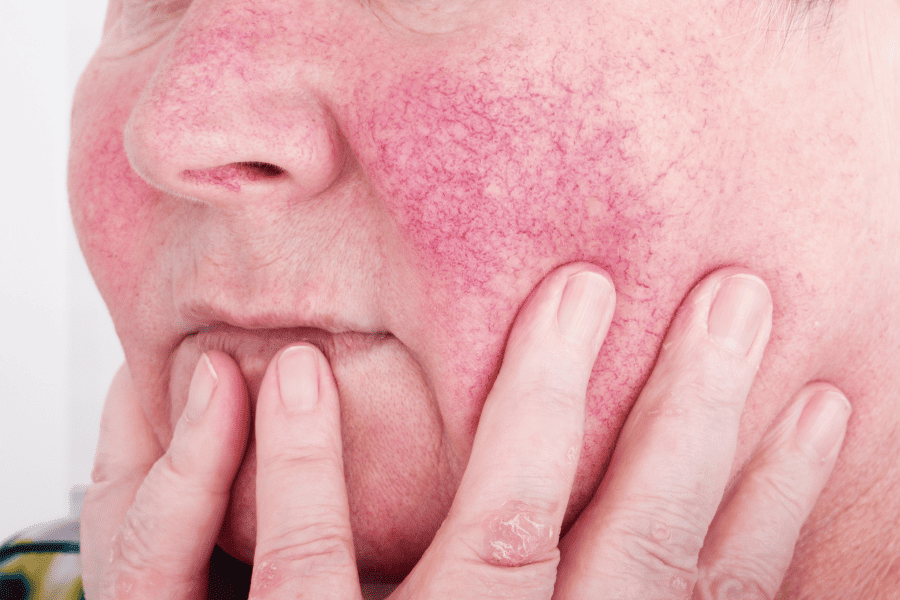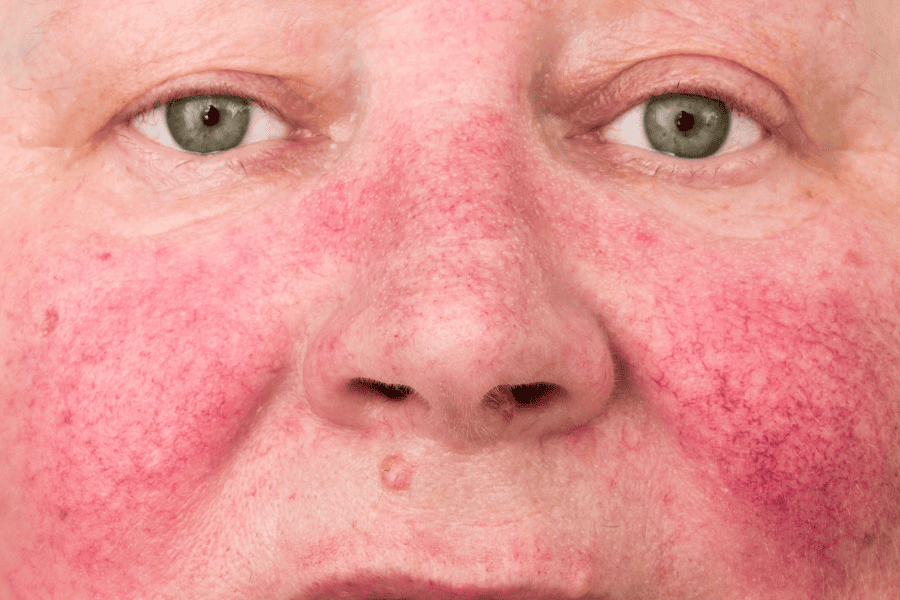Rosacea (Red Face)
Home » Medical Dermatology » Rosacea (Red Face)

What is Rosacea?
Rosacea is a common skin condition that causes redness and dilated blood vessels on the central face. Sometimes, it is also associated with small, red, pustules that are often confused with traditional acne. These symptoms typically flare up for several weeks or even months at a time before diminishing for a while. It’s often misdiagnosed as another skin condition, so it is important to have a comprehensive skin evaluation by one of our providers.
Who gets Rosacea?
Rosacea can occur in anyone, but it most commonly presents in middle-aged people who have fairer skin. The cause of rosacea is unknown, but it is an inflammatory condition likely due to a combination of genetic and environmental factors. A number of factors are known to trigger and aggravate it in some patients including:
- Sun, Sun, Sun!
- Spicy foods
- Hot beverages
- Alcohol
- Hot Weather
- Cold Weather
- Hot baths
- Wind
- Emotional Stress
- Heavy Exercise
- Cosmetics
- Certain medications
Start your journey
to Beautiful skin!
What are some common signs of Rosacea?
Rosacea most commonly causes a persistent redness in the central part of your face. Patients with rosacea also commonly develop small blood vessels on the nose and cheeks, which tend to swell and become visible.
Many people who have rosacea also develop pimples on their face that resemble acne. These bumps sometimes contain pus. Your skin may also feel hot and tender.
A large percentage of people who have rosacea also experience eye dryness, irritation and swollen, reddened eyelids. In some people with rosacea, the eye symptoms precede the skin symptoms.
Although rare, rosacea can thicken the skin on the nose, causing the nose to appear enlarged (rhinophyma). This occurs more often in men than in women.


